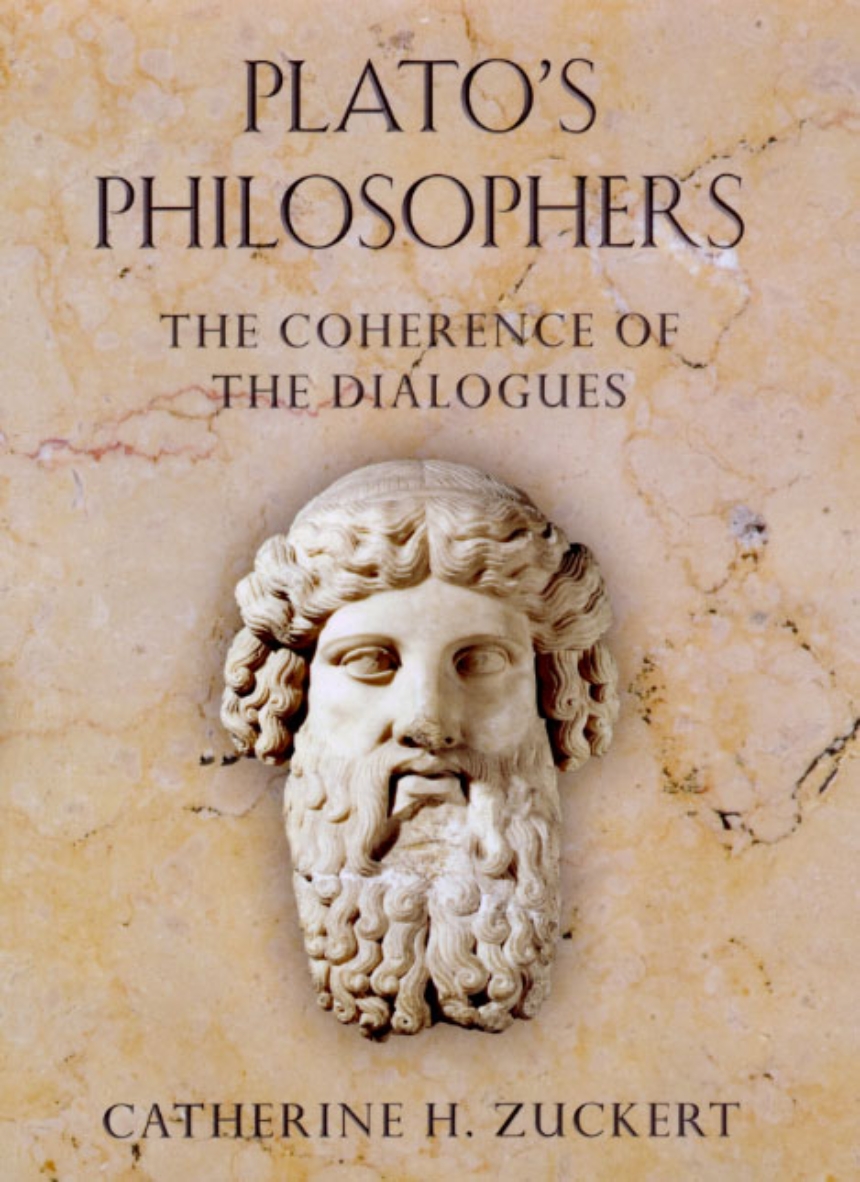Plato’s Philosophers
The Coherence of the Dialogues
Faced with the difficult task of discerning Plato’s true ideas from the contradictory voices he used to express them, scholars have never fully made sense of the many incompatibilities within and between the dialogues. In the magisterial Plato’s Philosophers, Catherine Zuckert explains for the first time how these prose dramas cohere to reveal a comprehensive Platonic understanding of philosophy.
To expose this coherence, Zuckert examines the dialogues not in their supposed order of composition but according to the dramatic order in which Plato indicates they took place. This unconventional arrangement lays bare a narrative of the rise, development, and limitations of Socratic philosophy. In the drama’s earliest dialogues, for example, non-Socratic philosophers introduce the political and philosophical problems to which Socrates tries to respond. A second dramatic group shows how Socrates develops his distinctive philosophical style. And, finally, the later dialogues feature interlocutors who reveal his philosophy’s limitations. Despite these limitations, Zuckert concludes, Plato made Socrates the dialogues’ central figure because Socrates raises the fundamental human question: what is the best way to live?
Plato’s dramatization of Socratic imperfections suggests, moreover, that he recognized the apparently unbridgeable gap between our understandings of human life and the nonhuman world. At a time when this gap continues to raise questions—about the division between sciences and the humanities and the potentially dehumanizing effects of scientific progress—Zuckert’s brilliant interpretation of the entire Platonic corpus offers genuinely new insights into worlds past and present.
896 pages | 6 x 9 | © 2009
Philosophy: History and Classic Works
Political Science: Classic Political Thought
Reviews
Table of Contents
ACKNOWLEDGEMENTS
INTRODUCTION
PLATONIC DRAMATOLOGY
Part I
The Political and Philosophical Problems
ONE Using Pre-Socratic Philosophy to Support Political Reform
The Athenian Stranger
TWO Plato’s Parmenides
Parmenides’ Critique of Socrates and Plato’s Critique of Parmenides
THREE Becoming Socrates
FOUR Socrates Interrogates His Contemporaries about the Noble and Good
Part II
Two Paradigms of Philosophy
FIVE Socrates’ Positive Teaching
SIX Timaeus-Critias
Completing or Challenging Socratic Political Philosophy?
SEVEN Socratic Practice
Conclusion to Part II
Part III
The Trial and Death of Socrates
EIGHT The Limits of Human Intelligence
NINE The Eleatic Challenge
TEN The Trial and Death of Socrates
CONCLUSION Why Plato Made Socrates His Hero
BIBLIOGRAPHY
INDEXAwards
Choice Magazine: CHOICE Outstanding Academic Title Awards
Won
Association of American Publishers: PROSE Book Award
Won
Association of American Publishers: R. R. Hawkins Award (PROSE)
Won
